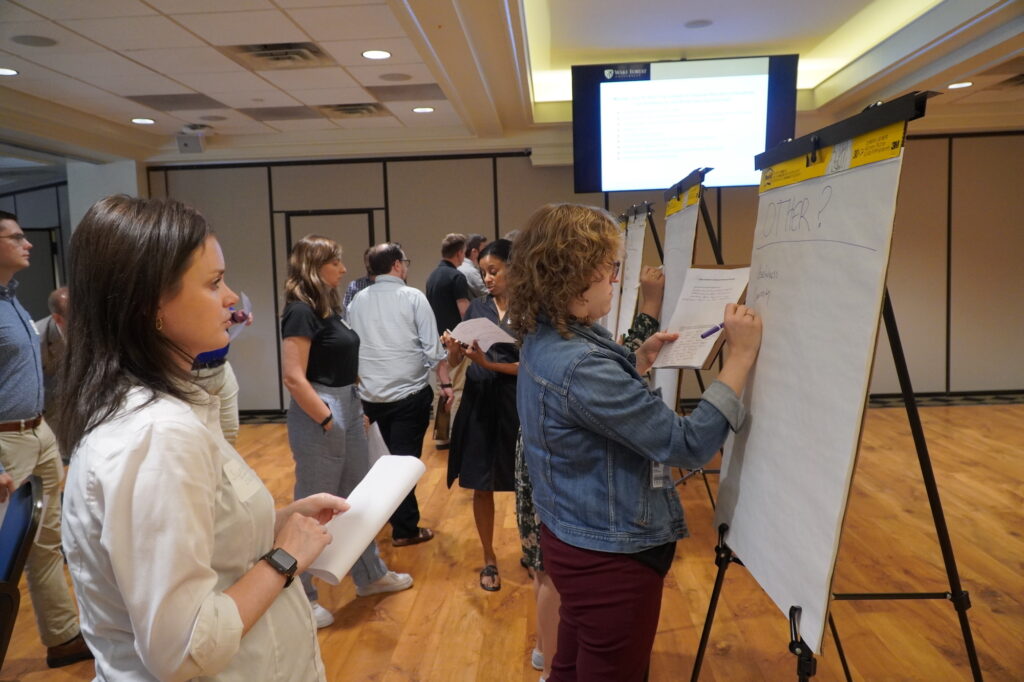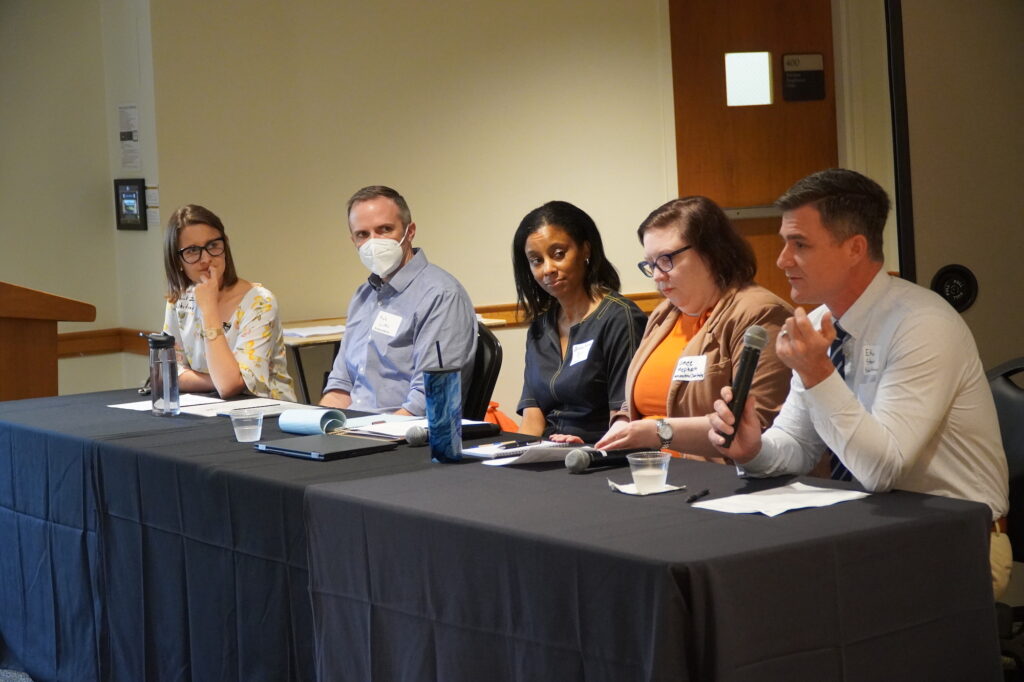Lessons from our 2023 Course Development and Redesign Workshop

In July, 23 faculty members from schools and departments around Wake Forest attended the Program’s fourth annual Course Development and Redesign Workshop. The three-day session was meant to support faculty in integrating leadership and character development into new and existing courses. “The ultimate goal is to give students chances to develop virtue that is relevant to their discipline or their profession,” said Elizabeth Whiting, the Director of Interdisciplinary and Engaged Learning in the Professional Schools. “In order to get to that goal, we help to equip faculty with evidence-based teaching strategies.”
An opening panel discussion with Zaneta Robinson (Law), Aimee Mepham (Humanities Institute), Kyle Luthy (Engineering), and Ethan Stonerook (Medicine) covered ways to help students become good actors in their own fields. In law, Robinson noted, one way of demonstrating character includes the ability to tell a client no, while still finding a way to help. “Students are often uncomfortable telling a client no, because they’re thinking that the experience is going to be negative for the client just because they’re not able to say yes,” she said. “But saying no is also a way of providing a service. You’re opening the door for other opportunities that the client may not have considered at first. And so it’s an opportunity to take a step back, revisit what the goal is, and find different ways to achieve that goal.”

Betsy Barre, Executive Director of the Center for the Advancement of Teaching, and Nancy Winfrey, Assistant Director of Curriculum and Pedagogy, both led workshops on teaching strategies. During one of them, Visiting Assistant Professor Nikki Moore recalled how a major change in her architecture class during the COVID-19 pandemic accentuated the virtue of resilience. “We had to shift one of the primary assignments, which is to do a formal analysis. And that means we sit in front of a building and draw it very carefully, usually as a class,” she said. “We’re sitting in front of Wait Chapel, for example, and we’re all looking at the same building. But because everyone is at home and this is being taught online, I asked the students to instead look at their own homes or buildings around them.
“It was a really great moment. You could see that they were able to translate the skill of looking at a building, and trying to understand it, into something that was very intimate and close to them that they probably had never thought about in that way before. So it was a really great moment of insight and a good way of really seeing resilience in action.”
In another session, Assistant Director in the Law School Benjamin Rigney talked about leadership, which he approaches as “a relationship of intentional influence.” You can watch a portion of his talk below.
Other presenters included Bradley Burroughs, Director of Leadership and Character in Academic, Civic, and Religious Life, who gave an overview of the Program’s Seven Strategies for Character Development. Several faculty members who had participated in past workshops gave examples of how they integrated some of those strategies and virtues into their courses. “The workshop got me thinking about this idea of creative humility and curiosity, and it got me thinking about the different learning activities that I could present to the class to get them to practice those virtues.” said Cagney Gentry, a professor of the practice in the Department of Communication, who integrated those virtues into his screenwriting course after last year’s workshop.
After the workshop, the faculty who attended will spend more time designing their syllabus, receiving feedback from other participants and Program staff, and integrating leadership and character practices into their courses, an exercise made possible by the Program’s Course Development and Redesign Grants, funded by a grant from the Lilly Endowment. As the workshop came to a close, Whiting left attendees with a charge, a poem, and a closing thought. “It’s all about human flourishing,” she said.
To learn more about future grants, visit our Faculty and Staff Grants page. For information about workshop topics and materials, contact Elizabeth Whiting.
